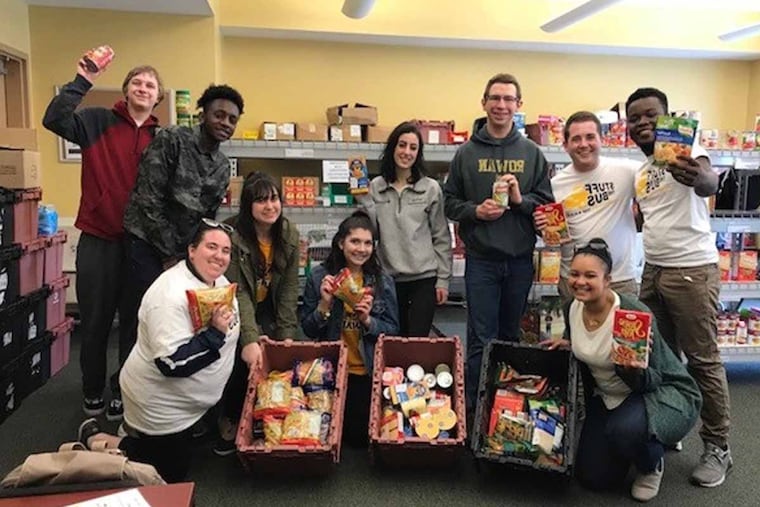‘Having sleep for dinner’: Many college students struggle to afford food | Opinion
In a perfect world, college students would only need to worry about how well they do in their classes.

In a perfect world, college students would only need to worry about how well they do in their classes. The problem with this fantasy is that nearly one in two students at Rowan University face food insecurity.
The reality of a broke college student stems from multiple sources nibbling money away from proper food. Besides tuition, students also must pay for housing and educational supplies. Many who are food insecure must choose between their education and a decent diet. Previously, university education was viewed as a privilege afforded only by those with the means. Today, most see university education as necessary for social mobility, status, and success in an increasingly competitive, global, knowledge economy.
Despite the growing demand for higher education, investment in public higher education has receded, transferring the responsibility of paying for it to more and more families. Students arrive at the university with greater debt and fewer resources to pay for everyday needs. The result: More students find themselves to be food insecure.
Our study of food insecurity at Rowan University in New Jersey offers a case in point. Using standard, USDA measures, we found 48 percent of students to be food insecure, and 31 percent to be very food insecure. Some report not eating for an entire day, some for several days a month. Others report "having sleep for dinner" as a way to cope with hunger. Certain students are more vulnerable than others. African Americans and Hispanics are much more likely to be food insecure than their white student counterparts. Likewise, first-generation college students are taking the chance to better their future but must fight battles of stress, money, and school.
Since parents or guardians typically managed the planning, purchasing, and preparation of meals in earlier years, most students never learned these life skills themselves. A skill deficit in this area makes it difficult for students to manage their diets when they arrive at a university. Also, the closest food stores normally cannot be reached unless you have a car on campus, which, as you expect, costs more money. Thus, students, already with a hectic and uneven daily schedule, turn to whatever food is convenient and available, which usually winds up being food consisting of refined carbohydrates and high amounts of sodium. Such diets leave food diversity out of the equation, due to the lack of fruits and vegetables, other than the standard lettuce and tomato found on sandwiches or hamburgers.
Food insecurity affects academic performance. Many students must decide between educational supplies (books, art supplies) and food. Most sacrifice the short-term benefits of food and nutrition for the longer gains of an education. Still, without adequate sustenance, students can see grades suffer. Students who are food secure, on average, have a higher GPA, 3.43, than those who are food insecure, 2.91.
However, there is hope for students due to recent changes made on campuses nationwide. More and more recognize food insecurity as a problem on campuses. Temple University opened up the Cherry Pantry this year to service the needs of students with the guiding principle "Access to healthy and nutritious food is a basic human right." Rowan has its own as well, the SHOP, where students can walk in for food or school supplies. Over 500 food pantries have been created on campuses across the nation to service the growing number of students in need. Online apps are being developed to help connect suppliers who often throw away food even as food-insecure students are in need. While local solutions benefit individuals at a local level, the problem itself stems from under-investment in students and the future.
Kevin Rescigno is a senior nutrition student and part of the Bantivoglio Honors Concentration at Rowan University.
Philadelphia Media Network is one of 19 news organizations producing Broke in Philly, a collaborative reporting project on solutions to poverty and the city's push towards economic justice. See all of our reporting at https://brokeinphilly.org.